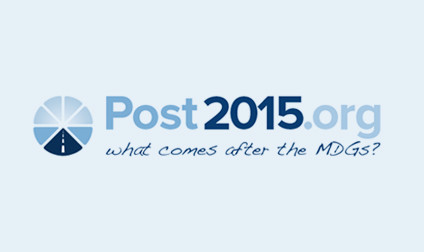
Written by Claire Melamed, Director of Growth, Poverty and Inequality Programme at ODI and Grant Cameron, Manager at the World Bank Group (DECDG).
A revolution starts with an idea, but to become real, it has to move quickly to a practical proposition about getting stuff done. And getting things done needs money. If the ideas generated last year, in the report of the UN Secretary General’s Independent Expert Advisory Group and elsewhere, about how to improve data production and use are to become real, then they will need investments. It’s time to start thinking about where the money to fund the data revolution might come from, and how it might be spent.
Getting funding for investment in data won’t be easy. As hard-pressed statistical offices around the world know to their cost, it’s tough to persuade governments to put money into counting things instead of, say, teaching children or paying pensions. But unless the current excitement about data turn into concrete commitments, it will all fade away once the next big thing comes along, leaving little in the way of lasting change.
So what is needed? Two things. Firstly, there must be new money for investments in data. But, critically, a second thing is needed too – the money must be spent in ways that enable and incentivise the changes that are needed to take advantage of the revolutionary possibilities in the data landscape. The IEAG report laid out four areas in which change is needed: capacity and resources, technology and innovation, principles and standards, and partnerships and leadership. New money, used well, can support all these and help to drive the changes that are needed. In particular, four new funding streams might help to drive progress in the right direction:
1. Funding for official statistics. As the IEAG said, ‘strengthening national capacities will be the essential test of any data revolution’. Building on the idea of ‘country compacts’, new money could be used to support change at the national level, supporting dialogue between data providers and data users, enabling new and useful partnerships between public sector, private sector and civil society, investing in the technological infrastructure, and rewarding measurable improvements in the production and use of high quality data.
2. Funding for innovation. While official statistics will be the core, ignoring the potential for innovation to solve problems, create new possibilities, and leapfrog over current technologies, will in the long run be a waste of resources. Innovation is happening, and it is important that funds are available to ensure that there are incentives to innovate in the public interest as well as for the private sector. A starting point could to be to explore how new innovations could help to fill gaps in data for the new Sustainable Development Goals, along the lines of the ‘SDG data labs’ proposed by the IEAG report.
3. Funding for data literacy and use. A dedicated funding stream for civil society groups, to enable them to experiment with the collection and use of data, to strengthen data literacy and build capacity, and in the end to drive increased demand for and use of data will be a key part of using the data revolution to achieve long term change in government policies and in the relationship between governments and citizens.
4. Funding for partnership and leadership. Most of the action, initiatives, and financing required to drive the data revolution will happen at the national and local levels. But, as the IEAG report makes clear, global level partnerships and leadership can help to consolidate and share emerging lessons and develop standards, can help to broker necessary partnerships, can help to develop regional and global technology infrastructure, and can help to showcase best practice and encourage innovation. This too, needs resources, and political support to drive it.
Good data, used well, is not cheap. But this is the moment to lay down the foundations for a future of high quality, accessible, and useful data. Good data will be essential for both monitoring and achieving the new sustainable development goals – and so funding for data could, and probably should, be a part of the discussion at the Third International Conference on Financing for Development to be held in Addis Ababa in July this year. If governments, companies and civil society rise to the challenge of investing in data in ways that drive change and improvement, then that could be the moment when we know if the ‘data revolution’ will be more than just a good idea.
Source: www.post2015.org










